Unity Day 2023
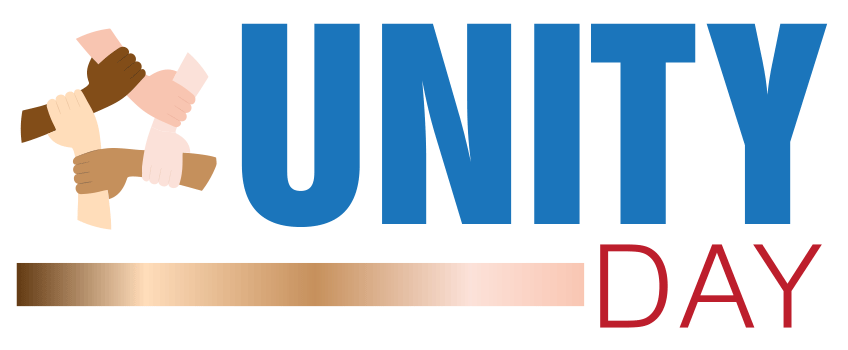
2023 Unity Day Conference
Thursday, March 30, 2023
Stockton University Campus Center
Galloway Campus
Since its founding, Stockton University has promoted civic learning and fostered an environment that values civil debate, critical thinking and multiple points of view.
Unity Day is a campus-wide effort to study, discuss and better understand the world in which we live and the people with whom we share it.
It is an opportunity to listen, learn and talk with people of different cultures, genders and points of view.
Come listen to the stories and scholarship.
Come join us for the conversation.
Schedule
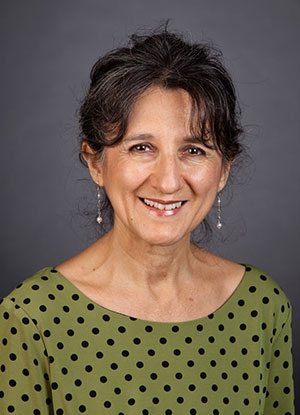 The Promotion of Global Education in Social Work Through Literature
The Promotion of Global Education in Social Work Through Literature
Dr. Yolanda C. Padilla, University of Texas - Keynote Speaker
Subtheme: Strategies in Promotion of Global Education
Moderator: Dr. Guia Calicdan-Apostle
Abstract:
Dr. Padilla will describe an exciting inter-university project that uses literature to promote global education in social work. The project is being implemented through the Center for Diversity and Social & Economic Justice at the Council for Social Work Education and is being carried out in collaboration with Words Without Borders Campus, an organization that makes contemporary international literature in translation accessible to students and educators. The focus of this project is on developing intercultural competence. Together teaching and learning resources inform service delivery, program planning, community partnerships, advocacy, policy, and other areas of social work practice across a broad range of fields.
Bio
Yolanda C. Padilla, PhD, MSSW, LMSW-AP is the director of the Center for Diversity and Social & Economic Justice at the Council on Social Work Education and the Clara Pope Willoughby Centennial Professor in Child Welfare at the Steve Hicks School of Social Work at The University of Texas at Austin. She is engaged in developing innovative approaches to professional social work education. Dr. Padilla served as Vice President of the Society for Social Work and Research for 2014-17. Her research focuses on social disparities in health and social well-being on poverty, race and ethnicity, and immigration as well as the responsiveness of social service delivery to cultural background. She has published extensively on the topics of Latino immigration and poverty and has received funding from the National Institute of Child Health and Human Development. She is a fellow of the American Academy of Social Work and Social Welfare, a fellow of the Society for Social Work and Research, and in 2019 was awarded a distinguished alumni award by the University of Michigan School of Social Work.
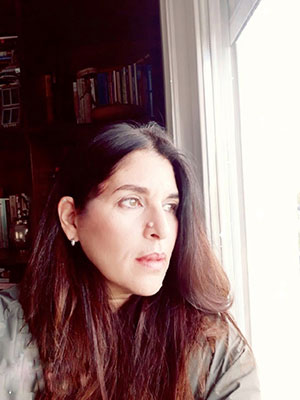
Convivial Classrooms: Learning in the Anthropocene
Dr. Sophia Emmanouilidou, Aristotle University of Thessaloniki
Subtheme: Promoting Solutions to Social Issues
Moderator: Dr. JY Zhou
What is conviviality? How can educators create convivial tools to shed light on and, eventually, amend societal ills? Is a convivial interlude feasible and/or effective in a multicultural learning environment? This workshop draws from Ivan Illich’s philosophy of education, as proposed in the 1970s, and Paul Gilroy’s recent refashioning of conviviality as ‘at ease’ cosmopolitanism. The session offers critical thinking and good practice examples of how knowledge can become/transform into a tool for the reconsideration of both the physical cosmos and human cultures in the age of the Anthropocene. We will present learning/educational activities which give prominence to our ‘glocalized’ selfhoods, and signal channels of communication whereby local knowledge informs universal intelligence/concern and vice versa. To these goals in mind, the workshop explores how the eco-cosmopolitan (i.e. ‘glocal’) approach highlights (some) of our common experiences in the physical cosmos and propels both educators and learners to think and act as citizens of a global village. Attendees with varied backgrounds (cultural, social, religious, and more) participate in creative activities, which prompt them to produce narratives that accept difference and diversity, but above all ascertain the common ground of all human enactment: planet Earth.
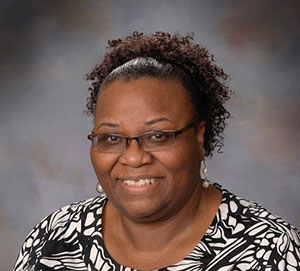 Strategies for Shifting Mindsets for Readiness in Global Transformational Change
Strategies for Shifting Mindsets for Readiness in Global Transformational Change
Dr. Sequetta Sweet, Stockton University
Subtheme: Promoting Solutions to Social Issues
Moderator: Christopher Lipari Pazienza
Transformation efforts in organizations, particularly those in areas of diversity, equity, and inclusion (DEI) and global education, are often seen one-dimensionally as changing the organization, without understanding that transforming an organization requires transforming the members of that organization. Leadership development is a vehicle for widespread organizational transformation. The intent of leadership development is to transfer knowledge, information, and skills (Solansky, 2014). The process of leadership is inextricably connected to the change process; therefore, leadership development is crucial to the success of transformation (Sweet, 2023). It involves helping employees at all levels develop and evolve in areas such as self-awareness and self-knowledge, authenticity, empathy, competence, collaboration, commitment, shared purpose, the ability to be open to various and differing perspective, and the capacity to engage in dialogue or discourse. Providing opportunities for workers to learn through critical reflection urges them to think outside of the current structures that restrict them and to consider the political and social tensions they may face (Vince et al., 2018).
Leadership development involves questioning and reformulating one’s beliefs. Transformation in organizations is supported by finding innovative approaches that shift our beliefs, which is necessary for change in DEI. This session presents opportunities to learn about both individual and collective sensemaking and interpretation, which are the basis for the value of leadership development in social change. Several topics will be covered in the workshop, namely, (a) the importance of questioning and challenging one’s beliefs, assumptions, values, and thinking that underpins one’s actions, (b) schemas, also known as mental models, which are important for transformative learning and change, (c) individual unlearning as part of the process of change, (d) critical reflection as a change readiness strategy, and (e) leadership development as a strategy for change. The session will include experiential learning activities that help us understand how to help ourselves and members of our teams unlearn current ways of thinking and begin to make room for new perspectives to ensure that marginalized, excluded, and oppressed people experience the power of inclusive leadership in organizations and communities. This is particularly important in spaces where DEI awareness is necessary.
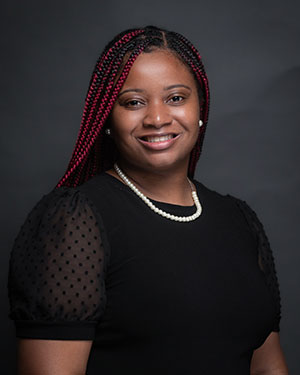 Studying Abroad While Black: Examining Study Abroad from the Perspective of Black
Students at Historically Black Colleges and Universities
Studying Abroad While Black: Examining Study Abroad from the Perspective of Black
Students at Historically Black Colleges and Universities
Victoria Parker, Program Manager, Office of Diversity, Inclusion, and Belonging, Purdue University
Moderator: Dr. JY Zhou
Abstract:
This session will examine the barriers that hinder Black students from studying abroad and suggest ways that these barriers can be addressed. Additionally, this session will explore the advice Black students who participated in a study abroad program have for other Black students interested in study abroad.
Bio:
Victoria Parker is the Program Manager for Purdue University’s Office of Diversity, Inclusion and Belonging, where she works with campus partners, student organizations, and individual students to ensure a campus climate where all students, particularly Black Boilermaker undergraduates, can maximize their potential. Additionally, she is a doctoral student in the Department of Agricultural Sciences Education and Communication (ASEC) at Purdue University. Her research interests focus on the study abroad and collegiate experiences of Black students. She earned her Master of Science in ASEC and graduated with her Bachelor of Science in Agriculture with a concentration in Agribusiness from Prairie View A&M University.
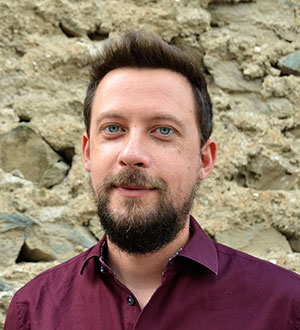 The Strategy of Multimodality in Fiction and its Impact on Global Education: Valeria
Luiselli’s Lost Children Archive and the Global Migration Crisis
The Strategy of Multimodality in Fiction and its Impact on Global Education: Valeria
Luiselli’s Lost Children Archive and the Global Migration Crisis
Dr. Thomas Mantzaris, Aristotle University of Thessaloniki
Moderator: Christopher Lipari Pazienza
Subtheme: Strategies in Promotion of Global Education
A growing number of contemporary literary authors have embraced multimodality, an inventive strategy that combines regular text with non-verbal elements such as photography, maps, typography, and design as part of their narrative composition. The creative experimentation and innovative practices that the reader encounters in the genre of print-based multimodal novels have challenged literary conventions, offered different forms of readerly engagement, and attracted significant cross-disciplinary scholarly attention.
In this presentation, I focus on the multimodality that the Mexican-American author Valeria Luiselli employs in her novel Lost Children Archive (2019). In building her literary narrative on the migration crisis at the Mexican-American border, Luiselli mobilizes the meaning-making affordances of Polaroid images, maps, and other design elements. For instance, by placing GIS maps of migrant deaths alongside her prose text, Luiselli instills the abstract, dotted representation of migrants on maps with poignant storytelling and partly restores the humanity of these lives.
Luiselli’s strategy of multimodality transcends local boundaries and contexts through
its visual immediacy and allows a shared humanity to emerge, empowering different
communities towards empathy and respect. To illustrate the educational capacity of
this strategy, I draw observations from the context of an undergraduate course on
Literatures of Anglophone Countries, where Luiselli’s strategy of multimodality proved
pivotal in building bridges between the migration crisis in the Mexican-American border
and that in the Mediterranean. In particular, the combination of verbal and visual
stimuli as integral parts of the narrative promoted the fostering of a common experience
of migration across different geographical territories, one that goes beyond standardized
representations in media and discourses. Through multimodality, Luiselli promotes
Global Education and highlights the significance of literature in sustaining peace
and understanding in a global society.
Lunch and Learn
Location: Campus Center Event Room
Faculty and employee panelists:
- Dr. Terrilyn Battle, Assistant Professor of Counseling – France
- Dr. Ramya Vijaya, Professor of Economics (Fulbright) – Sri Lanka
- Dr. Kimoni Yaw (formerly Wilbert St.Hilaire), Assistant Professor of Africana Studies - Benin
Staff/Student panelists:
- Ian Adjangba, Undergraduate Finance Major - Ghana
- Haashim Johnson-Smith ‘19, Admissions Recruiter and Graduate Student Business Program - South Africa
- Tamara Farrow ‘22 Business, current MBA student - Ghana
- Riya Goyal, Undergraduate Mathematics & Computer Science Majors – International student
Musical Performance: Passport Rav
Moderator: Dr. Shedia Laguer – Spain, Argentina, and Ireland
Building on the session Studying Abroad While Black: Examining Study Abroad from the Perspective of Black Students at Historically Black Colleges and Universities, this lunch panel explores the experiences of Stockton University students, faculty, and staff of color who have studied and traveled abroad. These stories will provide a window into the Global experience of traveling and studying abroad as a person of color.
This session will also include a musical performance for Passport Rav. Passport Rav is a producer/artist living in Brooklyn, NY. He is a Black man who has traveled the world with his music and encourages his following to do the same. He has worked with legends like Black Thought producing the underground track “Achievements.” Rav opened up for Skyzoo during his Retropolitan tour. He has also collaborated with Blu, Smoke DZA and various artists from around the world.
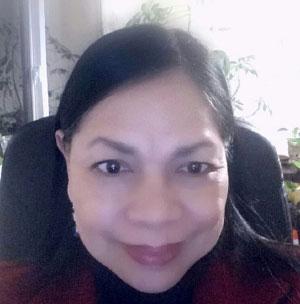 Working Towards Decolonization and Reconstruction in Higher Education: Small Steps
or Giant Leap?
Working Towards Decolonization and Reconstruction in Higher Education: Small Steps
or Giant Leap?
Dr. Guia Calicdan-Apostle, Stockton University
Subtheme: Colonization and Decolonization
Moderator: Dr. Valerie Hayes
Location: Campus Center Meeting Room 5
Higher education in America and parts of the world are primarily framed by assumptions and practices that are Eurocentric. The role of decolonization in global education is a critical step in challenging and dismantling the historical operations of colonialism, the legacies of imperialism, the impact of socio-economic and cultural inequities, and the promotion of policies that disregard the voices of the oppressed and marginalized communities. These factors drive the world order into chaos. This presentation will discuss strategies to begin the process of decolonization in higher education, curricula, pedagogy, and research. We explore the role of reconstruction in humanizing education by bringing the power of education to all students.
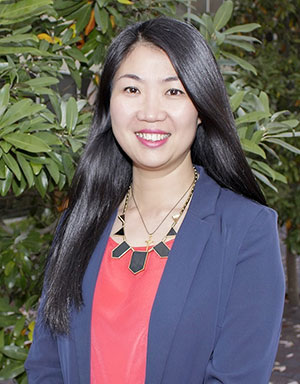
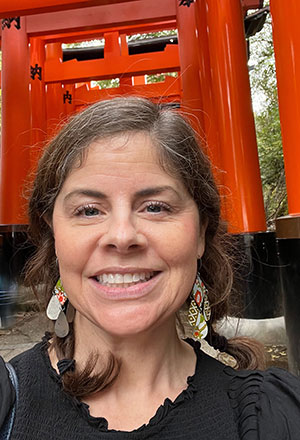 Stockton's Model UN International Travel Team
Stockton's Model UN International Travel Team
Dr. Tina Zappile, Stockton University
Dr. JY Zhou, Stockton University
Subtheme: Global education initiatives and projects
Moderator: Dr. Shedia Laguer
Location: Michael Jacobson Board of Trustees Room
Presenters -- and founders of this team -- will describe how the Model UN International Travel Team fosters diversity in global education through its mission and structure, with evidence from successful academic competitions abroad from 2014 through today. A combination of an international academic competition and faculty-led program (FLP) abroad, this project seeks to enhance the global education of a diverse set of undergraduate students through multiple modes of experiential learning. The foundation of the International Travel Team is the premise that complex global challenges need interdisciplinary approaches, and we work towards that goal by developing the following skills: negotiations; conducting research and ultimately crafting global public policy, professionalism in a global setting; diplomacy; learning from experts; civil society; and other stakeholders about a variety of perspectives and approaches to solving complex global challenges; teamwor
k; communication (written and oral); intercultural competencies in attitudes and skills; and developing oneself as a globally c
ompetent citizen. We are proud to partner with multiple stakeholders across campus to achieve these goals and provide students who would otherwise not have the opportunity to participate without university support.
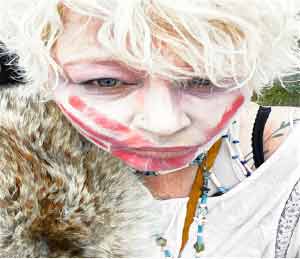 The Impact of Colonization Among Indigenous People: Is Global Education just another
solution?
The Impact of Colonization Among Indigenous People: Is Global Education just another
solution?
Ms. Dani Cranmer, Urban Indigenous Collective
Subtheme: Colonization and Decolonization
Moderator: Dr. Valerie Hayes
Location: Campus Center Meeting Room 5
The impact of colonization affecting oppressed groups like the missing and murdered indigenous people (MMIP) has widely contributed to their historical trauma, racism, abuse, and neglect. The needs and challenges of this vulnerable group have not been addressed by the very system that is supposed to protect them. The lingering and insidious effects of historical and multigenerational trauma are manifested in their daily lives, thus increasing suicide, child abuse, neglect, and generational poverty. To combat this perpetual effects of colonization, global education is a good place to begin the process of healing.
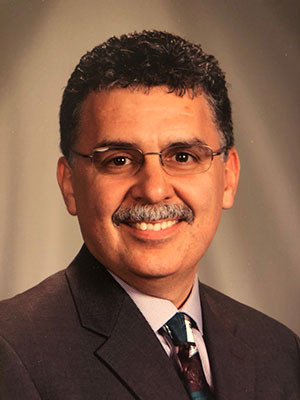 Climate Reality: Victimization and Global Education
Climate Reality: Victimization and Global Education
Dr. Al Morales, Climate Reality, Inc.
Subtheme: Global education initiatives and projects, Promoting Solutions to Social Issues
Moderator: Dr. Guia Calicdan-Apostle
Location: Michael Jacobson Board of Trustees Room
As we have become increasingly aware, Climate Change is an immensely complex problem
with global implications. Its scope and reach require global education and outreach,
a central tenet of Climate Reality’s mission "to catalyze a global solution to the
climate crisis by making urgent action a necessity across every sector of society."
To date, Climate Reality has trained 45,229 trained Climate Reality Leaders, 19,481
US chapter members, and 190 countries represented. Critical to this work is the notion
of Climate Justice and the need to center the impacts of those most vulnerable. While
these individuals and countries have done little to contribute to this problem, they
will be the victims who will suffer the most. Climate Reality has embraced its role
to educate and provide justice for people around the world.
Pilipino American Students Association of Stockton (PASAS) Dance Performance
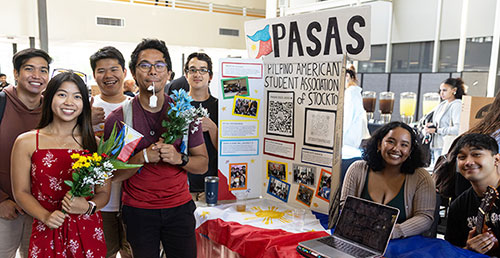
Location: Campus Center Event Room
The PASAS Dance Troop offers traditional folk dances in support of other multicultural organizations at least twice per year. The organization’s academic impact and cultural practices represent Stockton’s vision of transformative experience on inclusion and equity. Dr. Guia Calicdan-Apostle is the founding and current advisor of PASAS.
Social Justice Education Committee
- Dr. Valerie Hayes, Chief Officer for Diversity and Inclusion
- Dr. Guia Calicdan-Apostle, Associate Professor of Social Work
- Dr. Shedia R. Laguer, Assistant Director of Student Development
- Dr. JY Zhou, Director Office of Global Engagement & Senior International Officer
- Mr. Christopher Lipari-Pazienza, Engage NJ Changebuilder VISTA
- Ms. Dianne Stalling, Assistant Director, Student Development
- Ms. Loukaia Taylor, Communications Specialist
- Ms. Julie Shockley,Professional Services Specialist 3, Facilities & Operations
For more information, email Dr. Guia Apostle at Guia.Calicdan-Apostle@stockton.edu or Dr. Valerie Hayes at Valerie.Hayes@stockton.edu.
A collaborative conference planned by The Committee on Campus Diversity & Inclusive Excellence (comprised of faculty, staff, and students) through its Social Justice and Education subcommittee, The Office of Student Development, The Office of Diversity & Inclusion, with funding provided by The Office of Global Engagement (OGE) andThe Stockton Entertainment Team, The Unified Black Student Society, The Victimology and Victim Services Minor.


